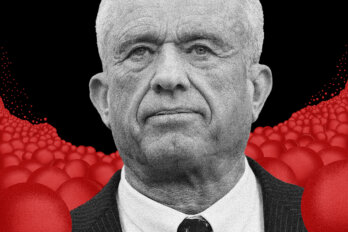There’s a lie you can tell yourself about living in a city, a fantasy you can muster to make sense of the cramped quarters you exchange for walkable distances and good restaurants. Somehow you convince yourself that it’s all worth it, that the nightlife and delicious food will negate the crushing despair of high rents and small spaces. But, as those very same restaurants, bars, and art galleries are forced to shut down over high rents and pandemic-related loss of business, that lie becomes unsustainable. Many of us now have to reckon with the reality of our actual square footage. Suddenly, the truth of just how tiny my home is feels devastating. You don’t necessarily have to feel bad for me, but I spent the early part of the pandemic stuck in a 400-square-foot Toronto apartment with my husband and two young kids, so you may want to extend a little sympathy my way.
Escape from one another was nearly impossible. I took work calls in the bathtub. The twenty-four hours I spent at the hospital giving birth to my second child felt like a stay in a luxury hotel because the birthing unit was so roomy compared to my apartment. The suffocating paranoia of the virus was matched only by the growing claustrophobia of being confined in a stuffy box with little insulation and paper-thin walls. And did I mention we had to do our laundry at the laundromat? In the middle of a pandemic?
For solace, I turned to one of my most trusted forms of psychological escape: reality TV. More specifically, Million Dollar Listing Los Angeles. If you’re not familiar, it’s a show about a group of luxury real estate agents buying and selling multimillion-dollar properties in LA. In the hybrid reality TV/home improvement genre, it’s the best of all possible worlds, allowing me to gawk and gape at beautiful, unaffordable homes while eavesdropping on the low-stakes drama of petty workplace feuds. Finding out that Alicia Keys is the secret star bidding on a ridiculous curved-glass house feels oddly electrifying paired with the mundane day-to-day squabbles of the real estate agents driving around Hollywood. The show’s twelve seasons feel endless, blurring into one another to become the ultimate pandemic binge watch—even amid the pandemic’s reality TV boom. In fact, the fantasy of buying a massive 1920s Spanish Colonial–style home or a place in Hollywood’s famed Bird Streets neighbourhood, from the show’s uber–real estate agent Josh Flagg, has provided emotional relief on far too many occasions this year.
But, several months into 2020, staring at the same poorly painted walls, which were beginning to close in on me, I started to feel betrayed by the show that had once offered me comfort. What changed was that my husband and I began a house hunt of our own. The pandemic hadn’t softened the market, so we knew the search would likely be futile. But it was a desperate bid to find some more room in the city. We came up against the harsh, decidedly unglamourous nature of Toronto’s real estate picture, where a million dollars can get you a gut job with lopsided ceilings—what real estate agents might call a “starter home.” As real estate website Zolo reported in November, the prices of homes in Toronto have seen around 10 percent growth year over year. The average price of a detached home in the city was just over $1.5 million in August 2020, according to a September report by brokerage and analysis firm Zoocasa. From that angle, the escapist fantasies of Million Dollar Listing felt less like a pleasurable indulgence and more like a cruel joke.
By now, it’s well documented that home ownership, one of the most significant traditional markers of financial stability and adulthood, is increasingly out of reach for the majority of millennials. Particularly in cities like Toronto, where an elastic real estate bubble stretched beyond bursting—combined with stagnant wages and ballooning student debt—ensures that many of us will be lifelong renters. But that hasn’t stopped our generation from at least trying to participate in the property ladder as voyeurs.
In fact, few things inspire as much generational angst, curiosity, and anger as real estate. In magazines like Toronto Life, articles about our rare house-buying peers fleeing the city or flaunting their wealth drive clicks and criticism. Early in the pandemic, the New York Times reported that visits to real estate listing site Zillow had gone up more than 50 percent year over year, with bored young people attempting to satisfy our home-ownership desires by obsessively gazing at homes we can’t afford. Our cultural preoccupation with real estate extends to our viewing habits as well. Realty reality hits, like Love It or List It and House Hunters, have been part of the television landscape for over a decade, and the genre keeps spawning new series, like Netflix’s Selling Sunset and Dream Home Makeover.
Even before the pandemic, real estate shows felt like a time capsule, albeit a more enjoyable one. In early seasons of shows like Property Brothers—which first aired in 2011—couples could safely secure a starter home for $300,000, even in a city like Toronto. I think there are maybe one or two parking spots you could purchase for the same price now, but only if you’re prepared for a bidding war.
The house-flipping shows have aged just as badly, if not worse. An entire industry exists, both on the ground and on TV, around purchasing properties, redecorating them, and reselling them at higher prices. In buying up houses, flippers contributed to the subprime mortgage crisis in the US. Even C-list celebrities like Scott Disick and Vanilla Ice have gotten into the flipping game. Add a little paint, a corny marble island, some shiplap, and an unnecessary giant hanging clock, and now this fixer-upper is a money maker. But what felt predatory even then feels unconscionable now, when the already devastating homelessness crisis threatens to explode across Canada as the pandemic rages on.
After a few months of looking for a home of our own in Toronto, we gave up. The tear-down semis with decaying floors going for $900,000 took the air out of our dreams. The pair of tiny, rundown homes we did manage to bid on sold for hundreds of thousands of dollars over asking, making our offers look pathetic in comparison. Unless you’ve got a sizable inheritance and an income far above the national average, there is no space for you in Toronto’s real estate market.
Just as our house search turned sour, so did my relationship with real estate shows. The last episode of Million Dollar Listing I let myself watch seemed to echo just why I was so turned off. A family was selling their home, a beautiful house that had been lovingly lived in for around twenty years. But it was difficult to sell at the price the owners hoped for, and this wasn’t its first time on the market. Speaking to the sellers, the real estate agent’s explanation showed that people used to buy homes to live in forever. Now, they buy them to make a profit. In a city like Toronto or Los Angeles, with a housing market that seems to show no signs of slowing down, a house is not a home but a commodity.
As much as I could indulge the fantasy that a million-dollar listing was something to aspire to, the price of that fantasy, like the cost of a house in the city, is too high to justify. So I’ve replaced it with something more realistic and predictable: the mind-numbing procedural loop of Law & Order: SVU.




